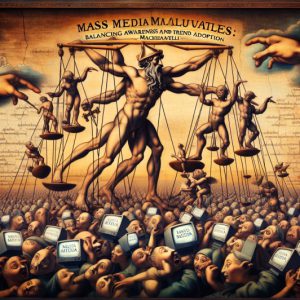
The Cholesterol Scam
Sept 15, 2023
The media, the medical and pharmaceutical sectors, the food industry, and various other industries have joined forces to peddle a series of falsehoods to ordinary, hardworking individuals. Like laboratory rats, the masses accept what is being forcefully fed to them. The masses often fail to pause and consider whether someone might be attempting to deceive them or whether they should verify the information before ingesting the potentially harmful substances that their doctors readily prescribe. Instead, the masses choose to remain passive and consume the information without question. The simple act of questioning everything can lead to research, which in turn provides alternative perspectives. A mind that remains unchallenged is a futile tool, and the longer it goes unused, the more ineffectual it becomes..
Dr Uffe Ravnskov
He has spent decades researching this topic, and he has demonstrated that there is a hidden agenda. The drug companies want to sell you crap to control what’s good for you. The irony is that you are taking out the good stuff and consuming poison, and they are making you pay for your poison. This video will reveal this scam in its entirety; watch and learn.
Additional notes on high Cholesterol
The battle against cholesterol was utterly nonsensical. In reality, cholesterol is beneficial; it serves as a healing agent, and when its levels are elevated, it strives to safeguard the body from allergenic or inflammatory agents. Similar to how the pharmaceutical industry previously deceived individuals into thinking that eggs were detrimental to health, they persist in disseminating the fallacy that cholesterol is harmful, despite a lack of genuinely credible evidence to substantiate this assertion. If one were to scrutinize the research studies they reference, it becomes apparent that, at best, they are employing flawed reasoning, or at worst, they are outright misleading to bolster these extravagant claims.
The real danger is the Rubbish they call beneficial oils.
Doctors and healthcare companies actively promote the consumption of certain oils, which some argue are harmful to health. Many individuals, like unwitting lab rats, follow these recommendations. It’s important to note that any type of seed oil, except for pure Coconut and Olive oil, is considered risky for your health. A flavorful alternative to oils is butter, which can be used in cooking. It’s crucial to conduct thorough research on the potential dangers associated with PUFA (polyunsaturated fats) and seed oils. This category also includes fish oils, which some consider perilous. What you believe to be healthy may have unforeseen consequences for your well-being.
To create an appealing facade, outlets like Prevention magazine and numerous other publications, often operating as non-profit entities, have emerged. Their primary purpose seems to be disseminating misleading information. By framing it as a battle between the pharmaceutical industry and the so-called toxic health industry, an illusion of good versus bad is created. Consequently, one group can be sold medications, while the other offers purported healing agents that may be just as hazardous. The ultimate goal appears to be having a multitude of sick individuals seeking treatment.
Random articles on the Cholesterol scam
The Daily Mail has released a controversial report asserting that there is no association between ‘bad cholesterol’ and heart disease, while The Times claims that ‘bad cholesterol’ may actually contribute to longer life. These headlines are grounded in a recent review that sought to compile evidence from previous observational studies concerning the relationship between LDL cholesterol (commonly known as “bad cholesterol”) and mortality in individuals aged 60 and older. The conventional belief is that elevated LDL cholesterol levels elevate the risk of cardiovascular diseases, including heart disease.
Researchers handpicked a total of 30 studies for their analysis. Out of these, 28 studies investigated the connection between LDL cholesterol and overall mortality. Interestingly, 12 of these studies found no correlation between LDL cholesterol levels and mortality. In contrast, 16 studies discovered that lower LDL cholesterol levels were associated with a higher risk of mortality, contrary to conventional expectations. Full story
Creating The Cholesterol scam/myth
The measurement and recording of physical, biological, and social data consistently reveal a prevalent pattern known as the normal distribution or bell-shaped curve. This phenomenon has been observed for centuries and stands as one of the most fundamental and widely employed concepts in statistical analysis. The bell curve possesses distinct characteristics. For instance, when measuring the height of a population within a country, it becomes evident that the majority fall within an average range, with a small portion being exceptionally tall and another small portion exceptionally short. This pattern represents a normal distribution, symbolized by the familiar bell-shaped curve.
Unsurprisingly, when examining cholesterol levels within a population, they also conform to a normal distribution pattern. Cholesterol levels exhibit significant variation among individuals. Advocates of cholesterol-lowering medications often advocate for an ideal cholesterol level below 200 mg/dl (or 5 mmol/l). However, it has been well-established for decades that cholesterol levels can range from 105 mg/dl to 343 mg/dl (or 2.8 to 8.8 mmol/l) in perfectly healthy individuals. The figure below illustrates the spectrum of cholesterol levels observed in healthy individuals. Continue reading
Other interesting articles:

IPI Stock Price: Ascending Star or Descending Dagger?

Silver and Gold Bull: Charging-Poised for a Powerful Move

Stock Market Manipulation: The Dominion of Financial Engineers

Strategic Safeguard: How to Prepare for a Stock Market Crash

Permabear Doomster Debacle: Daring to Defy the Dire Predictions!

How Much Money Do You Need to Invest in Real Estate?

Mass Media Manipulates: Balancing Awareness and Trend Adoption

What is Mainstream Media? Navigating the Web of Truth & Deceit

Market Mastery: Unconventional Paths to Stock Market Success

The Pillars of Investment Success: Cultivating Patience and Discipline

Contrarianism and Mass Psychology: A Dynamic Duo for Market Success

How much money do i need to invest to make $1000 a month?

What are the leading economic indicators supposed to predict?

Examples of Groupthink: Instances of Collective Decision-Making



